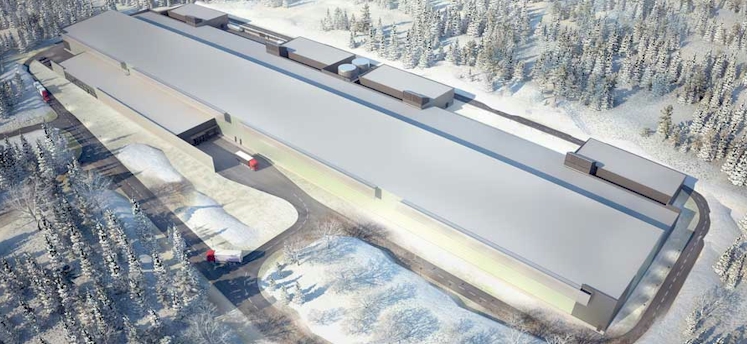Trouble on the Facebook Farm?
It seems as though Facebook just can’t shake these problems that keep popping up concerning its choice of data centers, often referred to as sever farms. When it comes to corporate management of a data center, the old mantra certainly rings true: no news is good news. Since it stands as a physical location that serves the virtual world, a data center doesn’t need to be located near the company’s headquarters, close to its points of operation, or really in any specific area whatsoever.
It also doesn’t need to employ innovative workers or consult a creative agency make any new contribution to the company’s core product. Rather, all it needs to do is sit there, process and store data, and not cause any PR issues or headaches for the company’s managers and technicians.
So the fact that Facebook’s data centers have been recently making news is generally not a welcome one for the company. First, Facebook came under fire from Greenpeace and other environmental groups for using coal to generate over half of the company’s electricity. Data centers are some of the world’s fastest-growing energy consumers, with a 40 percent global consumption increase since 2007.
Facebook alone uses the same amount of energy as 30 thousand American homes to power one sever farm. These facts in hand, Greenpeace started online campaigns – including campaigns on Facebook – to highlight this wasteful energy use, and it consequently generated some negative publicity for Facebook as a result.
Facebook responded last month with the announcement of a new data center in Lulea, Sweden, just 100 kilometers south of the Arctic Circle. The location was chosen for its cold climate (which keeps the servers warm), its offer of tax incentives, and its educated local populace. But, according to Facebook, the main factor in the decision was Lelea’s proximity to green energy resources, most notably hydroelectric power.

Facebook's newest data farm in Sweden.
While the move was welcomed by many, especially initially, there is a growing criticism that Facebook made an overly generous estimation of the amount of renewable energy that will be used at the center, and that the company chose the location primarily for the other listed reasons.
Now, just this past week, Facebook has run into problems with another of its data centers, this one located in rural Oregon. Facebook chose this center’s location based on tax breaks promised for bringing business to an economically depressed county. But now the state government wants to tax Facebook’s intangible assets, which would negate savings from the tax breaks offered. Facebook, in response, has been exploring legal avenues and curtailing expansion plans at the center, causing anger in a region that Facebook entered as an avowed goodwill gesture and with the intention of being a strong community partner.
As one of the world’s most powerful and relevant companies, Facebook has often found itself held to a different level than the competition. In many respects, this is now being seen in issues regarding the company’s data centers. But even if other companies aren’t as regularly expected to use green energy and care about their community, Facebook needs to take all these opinions into consideration when it expands its server farms and try to rile as few people as possible. No publicity, after all, is good publicity in this case.
By Damian Davila, blogger covering tech and gadgets at idaconcpts.com. You can read more articles from Damian at SexySocialMedia here. Follow him on Twitter at @idaconcpts.
Posted in Social Media News. Tags: facebook, facebook problems, facebook troubles
No Replies
Feel free to leave a reply using the form below!

